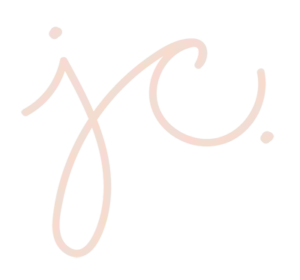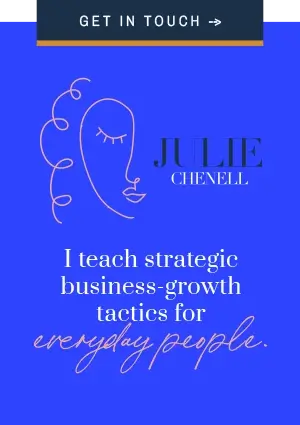In this episode, I talk about what stops us from producing new products – imposter syndrome and our need for a 100% guarantee that we can promise a certain result. Where is the line of personal responsibility?
Subscribe On:
Full Transcript:
Hey guys, hope you’re doing awesome today. This podcast episode. It’s not as clear in my head as some of my other ones, but I want to talk about the making of an expert. I gotta be honest with you. It is very hard sometimes to figure out where the line is between I’m responsible for my customers, my students, my client success versus a not my mess, not my problem. If you are in the online business life, if you’re a service provider, you’re going to run into this line because you’re going to wonder, okay, how much responsibility do I take for the success of this ad campaign for the success of this funnel, for the success of this website versus what are the things that are out of my control that I can do the best I can, and then that, then I can’t, you know? Then I have to let it go. If you’re a coach or consultant or a course creator, you’re going to run into the same problem just a little different. You’re going to think, okay, I am creating a coaching program or a course for this and this is the result I want, and what happens if those students, customers, clients, don’t get that result right away?
How much of it is your responsibility as the instructor or the coach versus how much of it is their responsibility? And even in the e-commerce space, you may have the same thing with a product understanding where the line is between the result that your product promises versus their responsibility. I mean, obviously you, you think about something like a car, right? Well, it’s the product manufacturers job to make the best car they can make the safest car they can make, right? To be accurate about the specs of the car. This is how big the gas tank is, this is how fast you can go and how fast the brakes respond and all that kind of stuff. But is the manufacturer responsible? When a 16-year-old punk takes the car out, you know, half in the bag and crashes it into a telephone pole, he dies and the safety mechanisms, you know, didn’t protect his life.
And I realize that’s a very, very dramatic example. But understanding the line of where your responsibility starts and ends and where your customer, client, student’s responsibility starts and ends is super important. Most of you guys know that I’m a coach, that I teach people how to build online businesses. That, uh, my goal is to get as many people into the two comma club as millionaires as possible. And a lot of times when you’re dealing with humans, they don’t do exactly what you tell them to do or they don’t hear what you say exactly. And I lose a lot of sleep over this. So I want to encourage you guys, because some of you may not be starting your business. You may not be launching your programs or courses because you feel like there’s something you have to acquire first as an expert so that you can feel 100 percent sure that you’re going to get the result that you promise so that you can alleviate this fear and not worry about pissing people off.
Am I right? Some of you are going to call it imposter syndrome, right? Like I can’t teach that yet. I can’t coach. I can’t launch that course because I can’t promise x, y, and Z. and the reality is that if you’re, if you know where that line is between what is your responsibility and what is your student, client or customer’s responsibility, you’ll be better able to make an accurate decision and an accurate perspective on whether or not you’re ready to launch something new. So what are the things that I do to try to find that line? So I’m going to give you a couple of examples in my business so that hopefully it will help.
The first one I want to do, and it is in the service based industry. So if you’re a copywriter, funnels ads, web designer, anything like that where you’re actually working with clients and producing a tangible asset. This example is for you.
One of the things that really scared me when I got started was that I didn’t. If I didn’t have crazy results yet, like I hadn’t made somebody a million dollars, I still was in business, still working with clients. So what did I do to create a good line? The first thing is that I set expectations. And in the last episode, I talked about how important expectations are. So as a service provider, it’s important for you to understand your industry, your industry’s benchmarks, so that you can set the expectation for the client as well, completely, totally will help you. So setting expectations. So for example, let’s say you’re building a funnel and they are expecting to make a million dollars on that funnel and you’re going to charge them 10 grand. Well, if you make a million dollars, 10 grand is a bargain, but what if in the first launch you only make 10 grand?
You have to ask them, are you willing to spend 10 grand to build this funnel knowing that you may not make all that money back on that first launch, but that you have a tangible, sellable asset vehicle that you can continue to use for years to come so that once that first launch is over with and we optimize and we get better and better and better, all that money on the back end will be profit. See immediately shifting expectations so that they understand that you’re not promising a million dollars. When you build that funnel, this is a very, very simple way for you to set that line of responsibility that you will build the best funnel you can build based on the offer that they have, but that you’re only a piece of the pie. So that’s how I would do it in the service based industry.
If you’re a true beginner, sometimes you can’t sell results. What you have to do is sell time first and that’s okay. It’s just understanding where you are in the market. Right? Okay. I don’t have million dollar results, I don’t have six-figure results, but I know that I’ve got these skills that I’ve been developing that I’ve been investing in and I can sell you back your time. So even though I can’t promise this funnel’s going to make a million dollars, I can promise you that I will save you the 60 or 70 hours of time it would have taken to build that funnel and I’m going to charge you a reasonable rate. Okay? There’s where you can easily create a line of responsibility so that you’re not so stressed out about producing something you’re not sure about yet. So the next thing is in a course creator or coaching model, right?
Where you’re offering tangible results in either a digital format or one on one. This one is really hard for me sometimes because I have people who come and they have great offers and they’re charismatic and they hit it out of the park and they just take what I’ve given them and they succeed and then I have other people who really struggle and at the end of the day as a coach, a consultant or a course creator, if you know that number one, the content and the training that you put out is sound that you’ve invested in your own training, that you know that it works, that you’ve seen at work in yourself or in other people. That’s the first thing.
Secondly, if you can set expectations for your students and your clients so that they understand, okay, you know, this isn’t meant to be a get rich quick, right? So this is where it’s really important that your marketing materials are congruent with what’s actually being sold, right? That’s really important in a lot of people do not do that honestly, and that’s part of the problem.
So those are the two biggest things that will help delineate the line in the sand. But at the end of the day, as a course creator, as a coaches, as a consultant, as in the words of Garrett White, I am a leader, not a savior, and you cannot position yourself as going to save your clients, save your students, save your customer because you are only a part of the equation. And so I think that if you can find that line and that you know that you’re really 100 percent proud of the work that you do, proud of the assets that you create. At that point, if you’re doing everything in your power and you’ve set those expectations and you have that integrity, the rest is on them and as hard as it is when you’re getting started and you just want that assurance that you’re going to be able to produce that result, or that course is going to be a home run. We can’t. We don’t have a crystal ball. Right?
Entrepreneurship is a risk. And so that’s kind of how I’ve come to terms with trying to figure out at what point I can teach something based on my own results. At what point I delineate between where my expertise ends and where my students and clients personal responsibility begins. So whether you’re in a service-based industry of course greet or a coach or consultant, strive to be in integrity, that will save you so many problems, honesty, integrity, consistency on the sales message as well as the result, not trying to use, you know, shady tricks and then always aiming very, very much so to set realistic expectations so that your customers and your clients are happy. And I’ll leave you with this little story. I was reading a book, it’s called Seducing Strangers and it’s how to get people to buy, whenever you’re selling.
And the guy was saying that he was, he was, had to do a jingle, like a commercial for a Taco joint. It was a really bad taco joint. He went in and the Tacos were greasy and everything fell apart and he was just like, oh my gosh, I’m going to create this commercial. And people are gonna come in once they’re going to be so disappointed and then they’re going to leave. They’re not going to buy again, and so he was taking personal responsibility for the fact that he didn’t want to create an advertisement that set the expectations so much higher than the actual delivery that it would actually cost them sales. So what he did was he actually created a jingle that matched the expectations. So the jingle was something about how like yummy tacos are greasy and yummy tacos fall in your lap, and he created this funny little jingle that kind of set the expectation that hey, when you go to this taco joint like you’re going to have a greasy taco that falls all over your lap.
But that’s the point. Right? And so when he set the expectation and he aimed to be in integrity and he aimed to do the best job that he could, what ended up happening is the customers came in and because that was their expectation, they were happy and they came back. And so let that be an encouragement to you that you don’t have to be the best in the world to get started today. That you don’t have to have a crystal ball. You can get started and if you aim for integrity and you aim for realistic expectations, you can make lots of students and clients and customers happy. And when there are some that aren’t happy, you can learn where that line of personal responsibility is. You guys have an awesome day. I appreciate you all. Talk soon. If you’re ready to create growth scale your online business, you can go to createyourlaptoplife.com/podcast and get a free plan on how you can get started today.









0 Comments